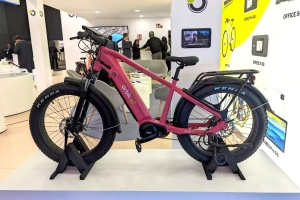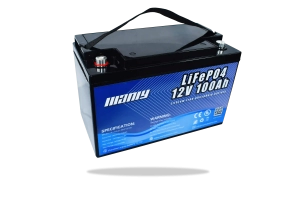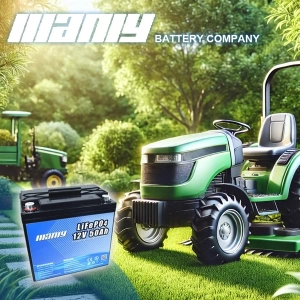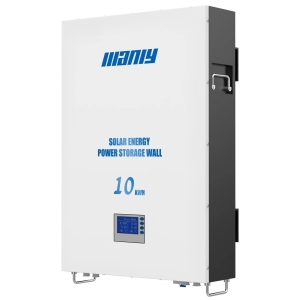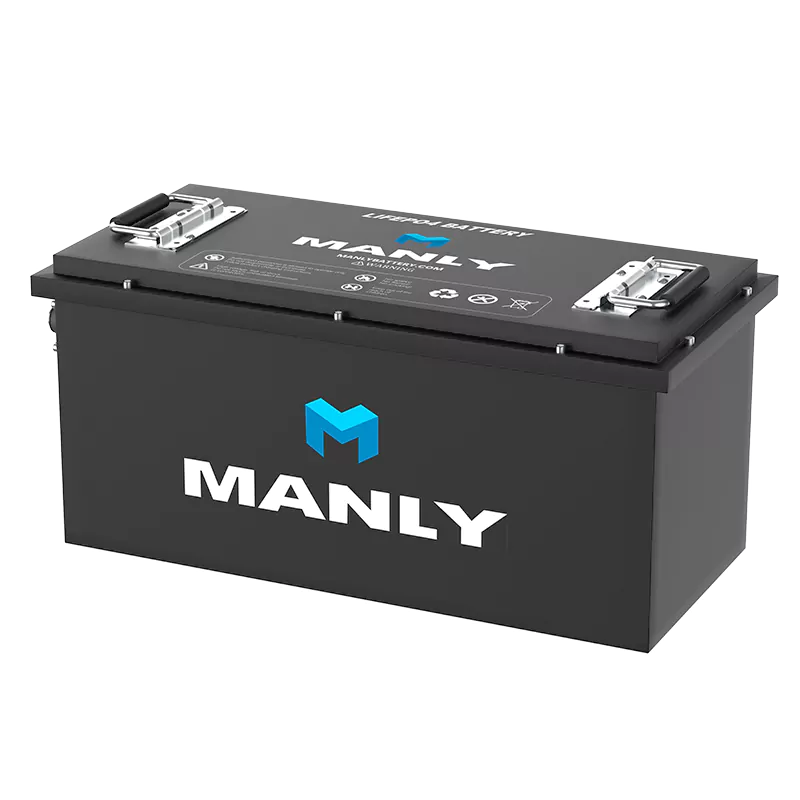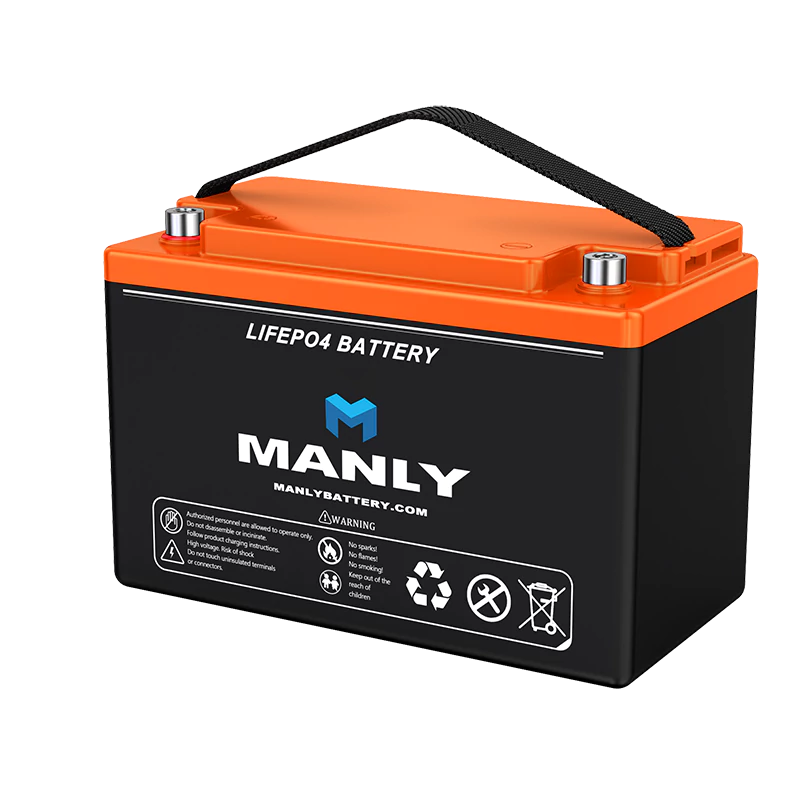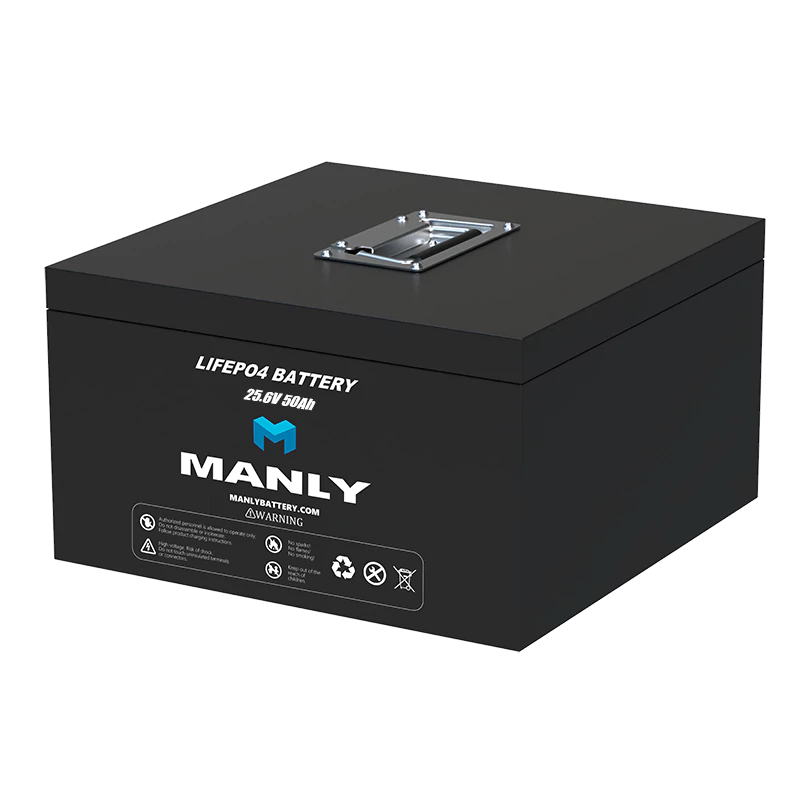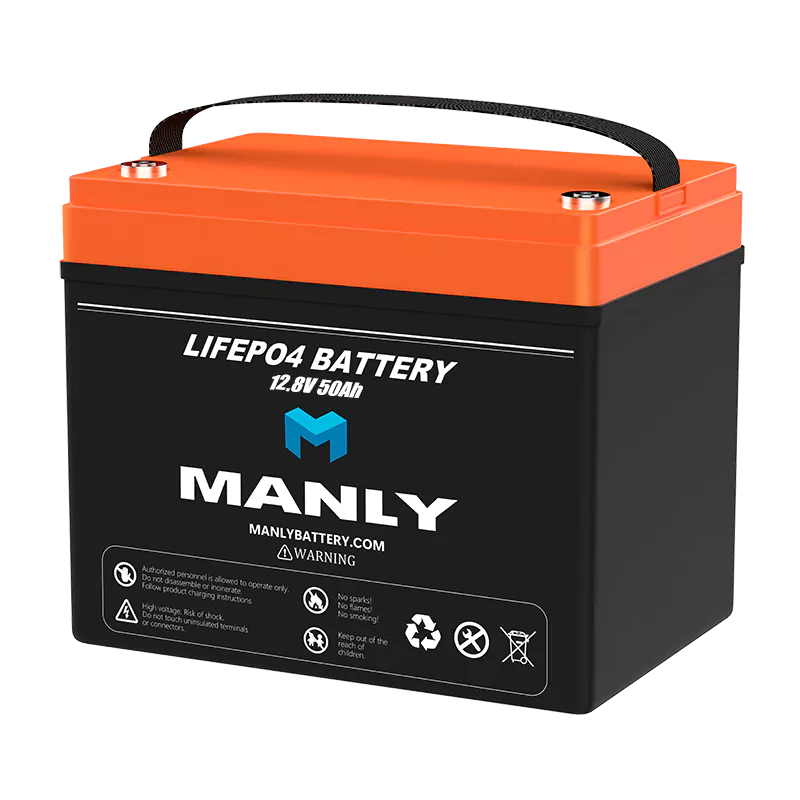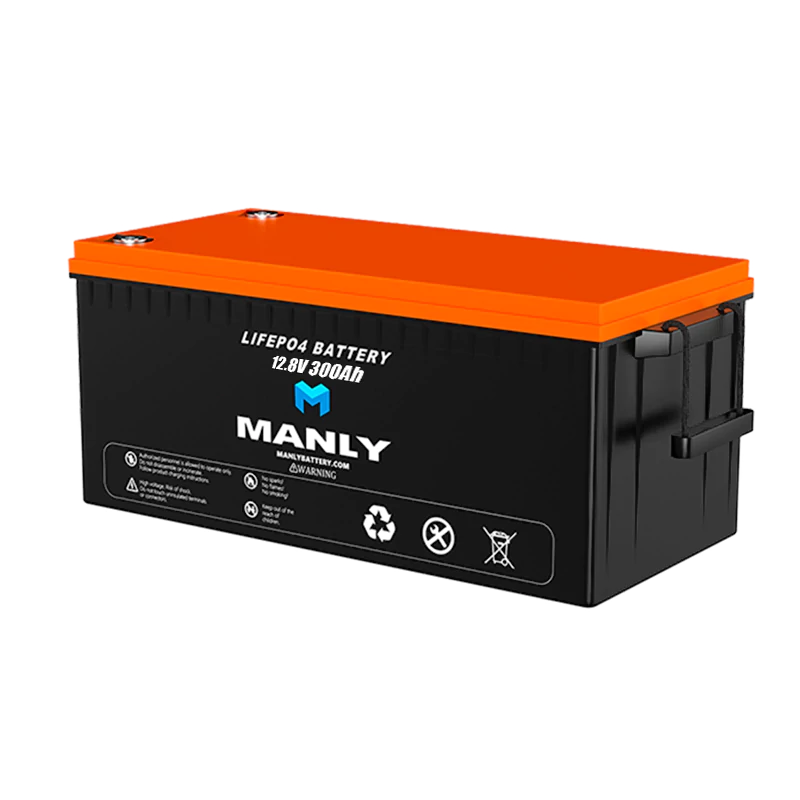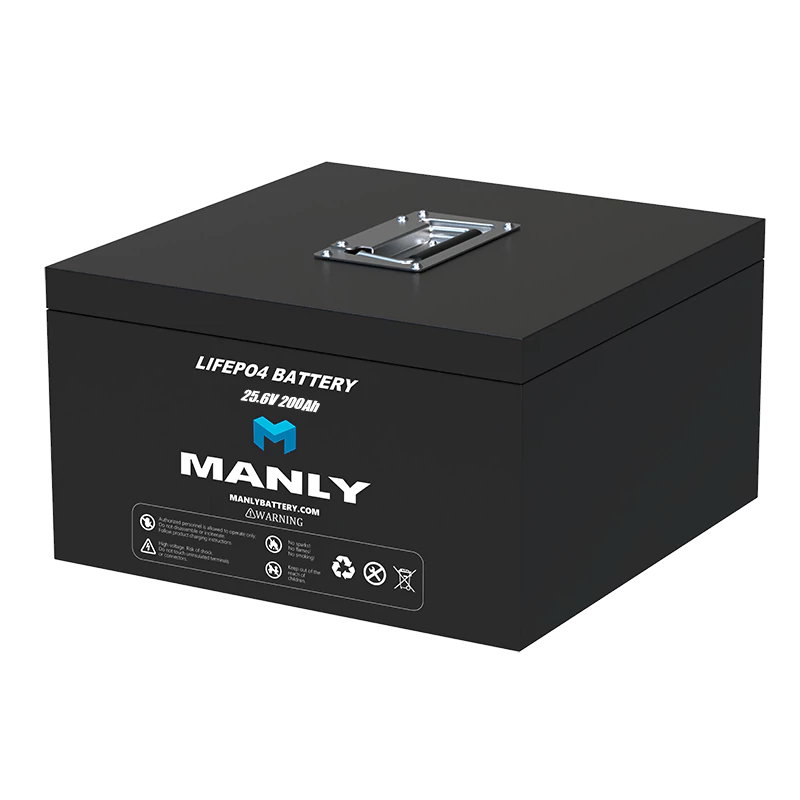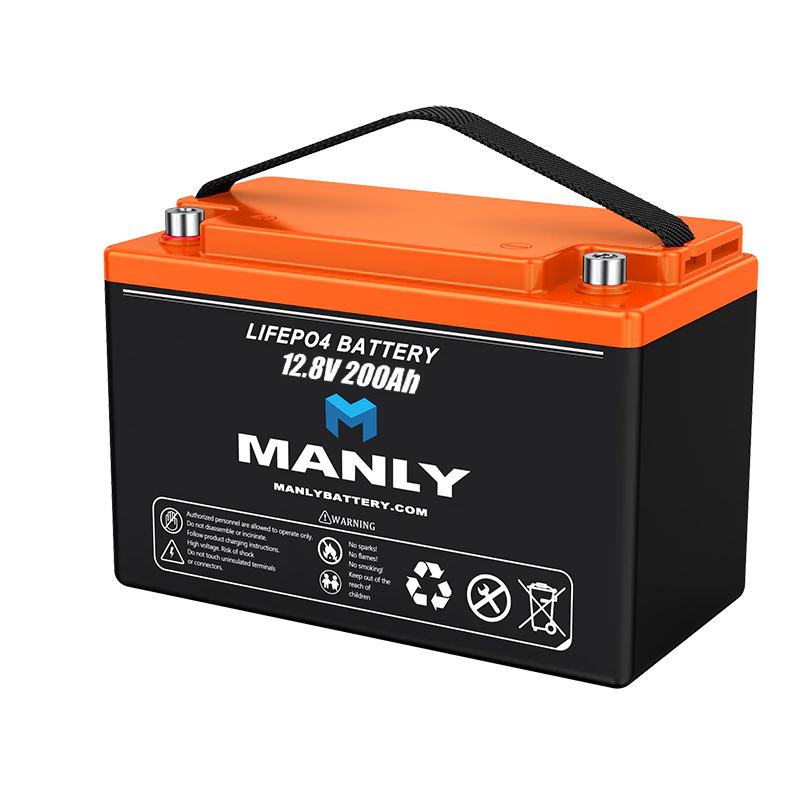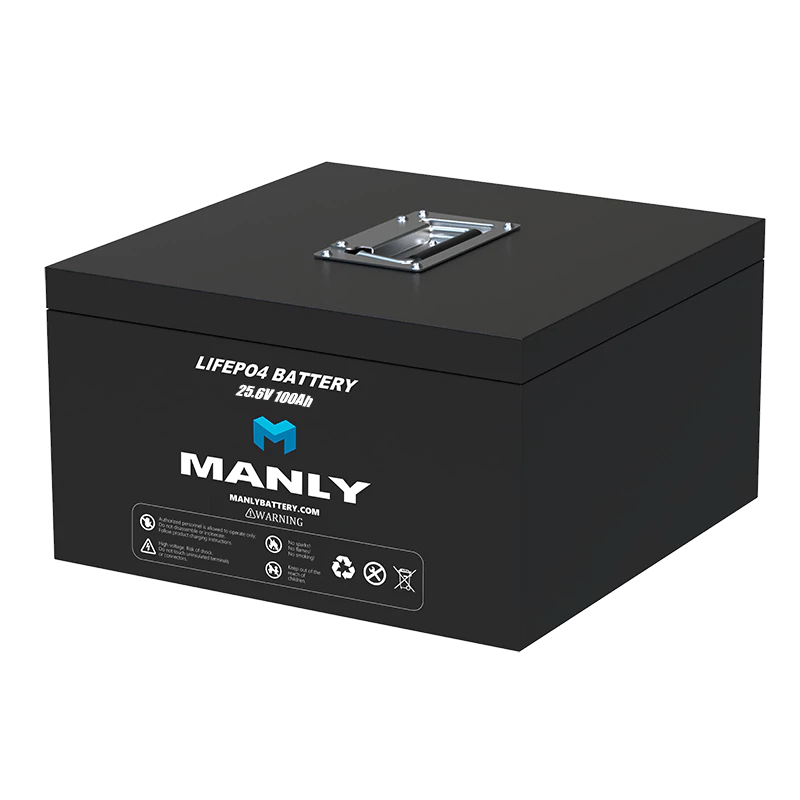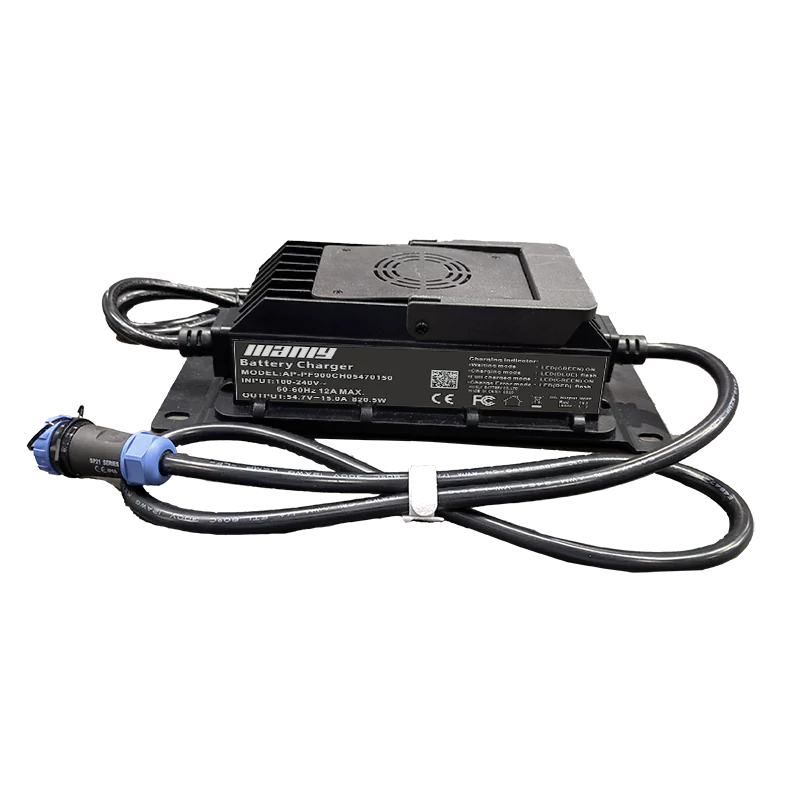2024 How to Find Battery Vendor for Your Business
Table of Contents
- 2024 How to Find Battery Vendor for Your Business
- What is a Battery Vendor?
- Importance of Choosing the Right Battery Vendor
- Strategies to Move from Battery Vendor Selection to Actionable Tactics
- Strategies to Move from Vendor Selection to Actionable Tactics
- Methods for Searching for Trusted Battery Vendors
- Building Long-Term Relationships with Battery Vendors
- Why MANLY Battery is Your Trusted Partner for Lithium Battery Solutions
- Conclusion
- Learn More About Battery
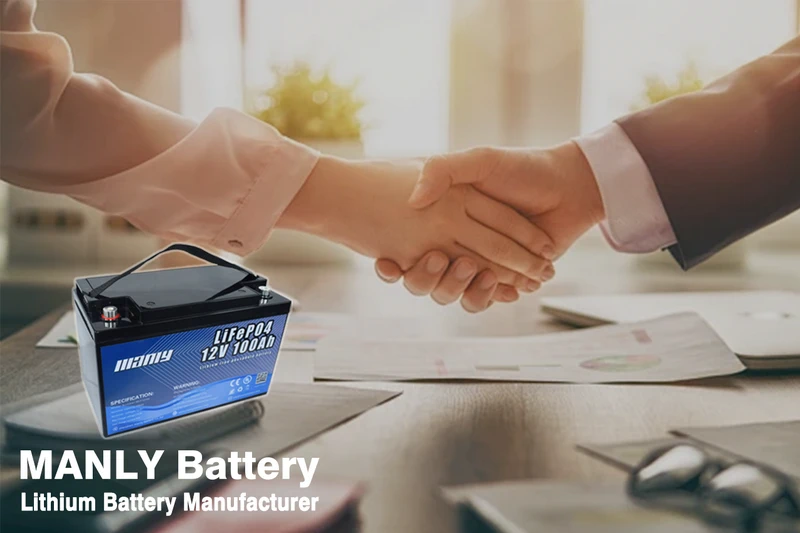
What is a Battery Vendor?
A battery vendor is an entity or individual that provides batteries or related services to businesses or consumers. They play a vital role in the supply chain by ensuring that businesses have access to the necessary products to meet their operational or customer needs. Battery vendors may operate as manufacturers, wholesalers, or distributors, each fulfilling a distinct function in the supply chain.Definition of a Battery Vendor
At its core, a battery vendor supplies batteries, such as lithium battery products, to various industries. These vendors may directly produce the batteries they sell or source them from manufacturers. While some vendors focus on acting as intermediaries between manufacturers and end-users, others provide value-added services, such as warehousing, quality assurance, or even technical support.Role in the Supply Chain
Battery vendors hold a crucial position in the supply chain for businesses that rely on batteries for their operations or products. Their key responsibilities include:- Ensuring Product Availability: Vendors ensure that businesses have consistent access to batteries required for their operations, avoiding delays that could disrupt production or sales.
- Facilitating Supply Chain Efficiency: By acting as a bridge between manufacturers and buyers, vendors simplify the procurement process, saving businesses time and resources.
- Providing Reliable Products: A trusted vendor ensures that the batteries supplied meet industry standards and performance expectations, building trust within the business relationship.
Common Types of Battery Vendors
Battery vendors can typically be categorized into three primary groups based on their role in the supply chain:- Manufacturers: These vendors produce batteries directly from raw materials. Manufacturers are the source of innovation in battery technology, such as the development of advanced lithium battery products. They often sell to wholesalers, retailers, or even directly to businesses requiring bulk orders.
- Wholesalers: Wholesalers buy batteries in large quantities from manufacturers and distribute them to smaller businesses. They serve as an intermediary that helps businesses manage their inventory more efficiently without the need for large-scale storage facilities.
- Distributors: These vendors focus on logistics and customer outreach. Distributors may warehouse products and handle sales to end-users, including businesses looking for specific vendors for business needs. They often provide localized services and faster delivery times.
Importance of Choosing the Right Battery Vendor
Selecting the appropriate battery vendor is crucial for your business's success. A reliable vendor influences product quality, cost efficiency, and supply chain stability, all of which are vital for maintaining competitiveness. This section explores how a trusted vendor can positively impact your business outcomes.1. Product Quality: Ensuring Consistency and Reliability
A battery vendor directly affects the performance and reliability of your final products. For instance, in industries utilizing lithium battery technology—such as golf carts, robots, and energy storage systems—poor-quality batteries can lead to performance issues or even safety hazards. Collaborating with a trusted vendor ensures adherence to quality standards, reducing the risk of defects and customer dissatisfaction.High-quality batteries also contribute to better durability and lifespan, enabling your business to maintain a reputation for reliability and innovation. Selecting the right vendor allows you to focus on growth instead of addressing recurring quality concerns.Real-World Example: In July 2024, a fire in St. Johns County, Florida, was attributed to a golf cart battery malfunction. The incident highlighted the risks associated with substandard battery quality, emphasizing the need for businesses to partner with reputable vendors to ensure safety and reliability.2. Cost Efficiency: Optimizing Business Margins
Partnering with the right vendors for business can result in significant cost savings. Reliable vendors often have streamlined operations, allowing them to offer competitive pricing without sacrificing quality. This is particularly important when sourcing bulk quantities of lithium battery products, where minor cost differences can scale into substantial savings.For example, MANLY Battery, a leading battery vendor, provides attractive bulk purchase discounts to support businesses in optimizing their procurement costs:- Orders below 200 units are offered at the standard price.
- Orders between 200 and 500 units receive a 5% discount.
- Orders of more than 500 units are eligible for a 15% discount.
3. Supply Chain Stability: Avoiding Delays and Disruptions
Unreliable vendors can disrupt your supply chain, leading to production delays or inventory shortages. For manufacturers, a delayed delivery of raw materials like lithium battery components can halt production, increase labor costs, or force rushed logistics. Retailers face similar risks, with inventory shortages causing lost sales opportunities and damaged customer trust.Collaborating with a trusted vendor ensures timely delivery and predictable supply chain operations, safeguarding your business against these risks. This stability is particularly valuable in industries with tight schedules or fluctuating demand, such as electronics and electric vehicle production.4. Case Study: Consequences of Choosing the Wrong Vendor
In 2013, Exide Technologies, a major battery manufacturer, faced significant legal and financial challenges due to environmental violations at their Vernon, California plant. The facility was found to be emitting high levels of harmful pollutants, leading to federal criminal investigations and eventual plant closure. This situation not only damaged Exide's reputation but also disrupted the supply chain for businesses relying on their batteries, highlighting the importance of selecting vendors with strong compliance and ethical standards.Strategies to Move from Battery Vendor Selection to Actionable Tactics
Effectively transitioning from vendor selection strategies to actionable tactics is essential for businesses aiming to optimize their supply chains and procurement processes. This involves setting clear goals, creating a structured evaluation process, and executing plans with precision. Below are practical steps to achieve this transition.1. Set Clear Vendor Selection Goals
To ensure that your vendor strategy aligns with business needs, you must define specific objectives. Common goals include:- Improving product quality: Collaborate with a trusted vendor to source high-performance components, such as lithium battery products for energy storage or robotics.
- Cost efficiency: Identify vendors for business that offer competitive pricing while maintaining quality.
- Supply chain reliability: Minimize delays and disruptions by partnering with dependable vendors.
2. Create a Vendor Evaluation Matrix
A vendor evaluation matrix is a structured tool that helps businesses objectively assess potential partners based on predefined criteria. Key elements to include are:- Quality Standards:
- Does the vendor consistently meet industry certifications (e.g., ISO standards)?
- Are product samples, such as lithium battery units, reliable under rigorous testing?
- Cost Analysis:
- How does the vendor’s pricing compare to competitors for similar products?
- Are there bulk purchase discounts, such as those offered by MANLY Battery, where orders of 200–500 units receive a 5% discount, and orders above 500 units get a 15% discount?
- Delivery and Reliability:
- What is the vendor’s track record for on-time deliveries?
- Are they equipped to handle sudden surges in demand without compromising quality?
- Flexibility and Scalability:
- Can the vendor adapt to your changing business needs, such as transitioning to new technologies or increasing production capacity?
3. Execute Strategies with Precision
Once the ideal vendor is selected, transitioning to actionable tactics ensures successful collaboration. Key considerations include:- Effective Communication: Maintain open and transparent communication to align on expectations, such as quality benchmarks, lead times, and delivery schedules. Tools like shared dashboards or regular status meetings can enhance collaboration.
- Supply Chain Diversification: Avoid over-reliance on a single vendor by maintaining a network of suppliers. This strategy mitigates risks associated with global disruptions, such as the COVID-19 pandemic, which heavily impacted supply chains.
- Monitor Performance Metrics: Establish key performance indicators (KPIs) to evaluate vendor contributions over time. Metrics like defect rates, delivery accuracy, and customer satisfaction provide actionable insights for continuous improvement.
- Vendor Retention: Build strong relationships with your battery vendor by ensuring timely payments and providing consistent feedback. Satisfied vendors are more likely to prioritize your business and offer better terms.
Strategies to Move from Vendor Selection to Actionable Tactics
Effectively transitioning from vendor selection strategies to actionable tactics is essential for businesses aiming to optimize their supply chains and procurement processes. This involves setting clear goals, creating a structured evaluation process, and executing plans with precision. Below are practical steps to achieve this transition.1. Set Clear Vendor Selection Goals
To ensure that your vendor strategy aligns with business needs, you must define specific objectives. Common goals include:- Improving product quality: Collaborate with a trusted vendor to source high-performance components, such as lithium battery products for energy storage or robotics.
- Cost efficiency: Identify vendors for business that offer competitive pricing while maintaining quality.
- Supply chain reliability: Minimize delays and disruptions by partnering with dependable vendors.
2. Create a Vendor Evaluation Matrix
A vendor evaluation matrix is a structured tool that helps businesses objectively assess potential partners based on predefined criteria. Key elements to include are:- Quality Standards:
- Does the vendor consistently meet industry certifications (e.g., ISO standards)?
- Are product samples, such as lithium battery units, reliable under rigorous testing?
- Cost Analysis:
- How does the vendor’s pricing compare to competitors for similar products?
- Are there bulk purchase discounts, such as those offered by MANLY Battery, where orders of 200–500 units receive a 5% discount, and orders above 500 units get a 15% discount?
- Delivery and Reliability:
- What is the vendor’s track record for on-time deliveries?
- Are they equipped to handle sudden surges in demand without compromising quality?
- Flexibility and Scalability:
- Can the vendor adapt to your changing business needs, such as transitioning to new technologies or increasing production capacity?
3. Execute Strategies with Precision
Once the ideal vendor is selected, transitioning to actionable tactics ensures successful collaboration. Key considerations include:- Effective Communication: Maintain open and transparent communication to align on expectations, such as quality benchmarks, lead times, and delivery schedules. Tools like shared dashboards or regular status meetings can enhance collaboration.
- Supply Chain Diversification: Avoid over-reliance on a single vendor by maintaining a network of suppliers. This strategy mitigates risks associated with global disruptions, such as the COVID-19 pandemic, which heavily impacted supply chains.
- Monitor Performance Metrics: Establish key performance indicators (KPIs) to evaluate vendor contributions over time. Metrics like defect rates, delivery accuracy, and customer satisfaction provide actionable insights for continuous improvement.
- Vendor Retention: Build strong relationships with your battery vendor by ensuring timely payments and providing consistent feedback. Satisfied vendors are more likely to prioritize your business and offer better terms.
Case Study:
In 2023, General Motors (GM) encountered production delays in its electric vehicle (EV) lineup due to challenges in scaling battery module production. To address this, GM implemented a comprehensive vendor evaluation matrix, assessing potential suppliers on quality, cost, and reliability. This strategic approach led to the selection of a trusted battery vendor, resulting in a 25% reduction in lead times and a 15% decrease in production costs over six months. This case underscores the importance of aligning vendor selection strategies with actionable tactics to enhance supply chain efficiency.Methods for Searching for Trusted Battery Vendors
Finding the right battery vendor is essential for maintaining supply chain stability, ensuring product quality, and managing costs effectively. Below are proven methods to locate and evaluate reliable vendors for lithium battery products or other battery-related needs.1. Online Supplier and Vendor Directories
Online directories provide a streamlined way to search for vendors. Trusted platforms include:- Energizer Holdings Inc.: A globally recognized supplier of batteries for various applications, Energizer offers dependable solutions for businesses in sectors like robotics, energy storage, and mobility.
- Global Sources: Known for connecting global buyers with suppliers, this platform is particularly useful for sourcing lithium battery products in bulk.
- Verify Certifications: Look for industry standards such as ISO 9001.
- Review Feedback: Check customer reviews and ratings to assess reliability.
- Request Samples: Always test product samples before placing large orders.
2. Trade Shows and Industry Events
Attending trade shows is an excellent way to connect with trusted vendors and learn about the latest innovations in battery technology.Benefits of Trade Shows:- Direct access to vendor representatives.
- Opportunities to examine product samples in person.
- Networking with other industry professionals for referrals.
- Battery Show Europe (Germany): Focused on energy storage and electric mobility.
- China International Battery Fair (China): Showcasing the latest advancements in lithium battery technologies.
3. Trade Organizations and Professional Associations
Trade organizations often provide directories of vetted suppliers. These resources are particularly useful for businesses seeking trusted vendors in specialized industries.Recommended Resources:- Battery Council International: Offers access to reputable battery vendors worldwide.
- National Electrical Manufacturers Association (NEMA): Provides a list of certified suppliers for energy storage solutions.
4. Professional Networks and Referrals
Leveraging professional networks, such as LinkedIn or industry-specific forums, can be an effective way to search for vendors.How to Use Professional Networks:- Reach out to LinkedIn contacts in your industry to ask for vendor recommendations.
- Join forums or groups focused on energy storage, robotics, or electric mobility to connect with peers.
- Use targeted searches like "battery vendor" or "trusted vendor" to find relevant discussions.
5. Social Media and Online Communities
Social media platforms like Facebook, LinkedIn, and even niche online communities can help identify vendors for business.How to Leverage Social Media:- Search for specific hashtags, such as #BatteryVendor or #LithiumBatterySupplier, to discover supplier profiles.
- Follow industry influencers who share recommendations for reliable battery vendors.
- Participate in webinars or live events hosted by suppliers to learn more about their offerings.
6. Local Resources
Local chambers of commerce and economic development organizations can be valuable sources for identifying regional suppliers.How to Use Local Resources:- Access supplier directories maintained by your local chamber of commerce.
- Network with other local businesses to gather referrals.
- Attend local industry meetups to connect with potential battery vendors.
7. Online Marketplaces
Online marketplaces provide access to a wide range of suppliers, often with customer reviews to help assess reliability.Popular Marketplaces:- Amazon Business: Ideal for smaller bulk orders and quick delivery.
- eBay: Offers competitive pricing but requires careful vetting of suppliers.
- AliExpress: Suitable for businesses sourcing lithium battery components in smaller quantities.
- Review customer feedback and ratings.
- Check shipping terms and additional fees.
- Ensure the supplier offers warranties or guarantees for their products.
Building Long-Term Relationships with Battery Vendors
Building long-term relationships with vendors is crucial for sustained business success. Such partnerships foster trust, enhance collaboration, and drive innovation. To cultivate these relationships, consider the following strategies:Clear Communication and Expectations
Establishing open lines of communication ensures both parties understand quality standards, delivery schedules, and other critical expectations. Utilizing detailed contracts can protect the interests of both parties and provide a clear framework for the partnership.Collaboration on Innovation
Engaging vendors in the development of new products or the enhancement of existing technologies can lead to significant advancements. For instance, BMW's Supplier Innovation Award program encourages suppliers to contribute innovative solutions, resulting in cutting-edge developments in automotive technology.Regular Performance Reviews
Conducting periodic evaluations of vendor performance allows for timely adjustments and continuous improvement. Implementing incentive mechanisms can motivate vendors to maintain high standards and foster a long-term collaborative relationship.By focusing on these areas, businesses can build and maintain strong, mutually beneficial relationships with their vendors, leading to enhanced performance and innovation.Why MANLY Battery is Your Trusted Partner for Lithium Battery Solutions
When businesses search for vendors to meet their energy needs, MANLY Battery consistently emerges as a top choice. With over 13 years of experience, MANLY Battery stands as a leading battery vendor, delivering innovative lithium battery solutions tailored to various industries, including energy storage, robotics, and electric mobility.Unmatched Production Capacity
At MANLY, we take pride in our ability to meet high-volume demands without compromising quality.- Daily production of 6MWh of battery cells and packs.
- Over 3,000 batteries assembled daily in state-of-the-art facilities across Shenzhen, Dongguan, and Huizhou.
Versatile Applications
Our extensive product lineup is designed to cater to diverse applications:- Solar energy storage: Reliable power for residential and industrial setups.
- Golf cart batteries: High-performance energy for electric vehicles.
- Robotics: From warehouse automation to advanced military systems.
- Forklift batteries: Durable and efficient energy for heavy-duty tasks.
Featured Products for Key Industries
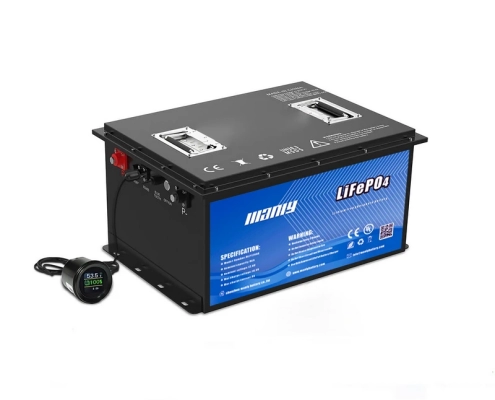
1. 48V Lithium Golf Cart Battery
Designed for golf carts, the 48V Lithium Golf Cart Battery offers unmatched reliability and efficiency.- Key Features:
- Available capacities: 50Ah, 60Ah, 105Ah, 120Ah, 160Ah.
- Lightweight design and high energy density for improved performance.
- Quick charging: Fully charges in 3-5 hours.
- Extended lifespan of 10-15 years with minimal maintenance.
- Built-in safety protections, including overcharge and overheating safeguards.
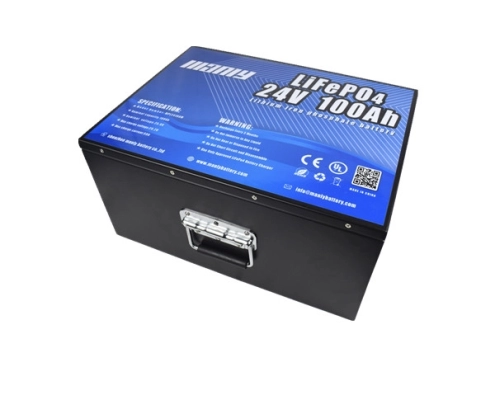
2. 24V 100Ah Lithium Battery for Robots
Engineered for robotic applications, the 24V 100Ah Lithium Battery delivers exceptional durability and scalability.- Key Features:
- LiFePO4 technology for enhanced safety and efficiency.
- Compact, lightweight design suitable for AGVs and industrial robots.
- Parallel connection capabilities for increased energy demands.
- Comprehensive safety features, including short circuit, overcharge, and over-discharge protection.
- Certified by UN38.3, IEC62133, UL, and CE.
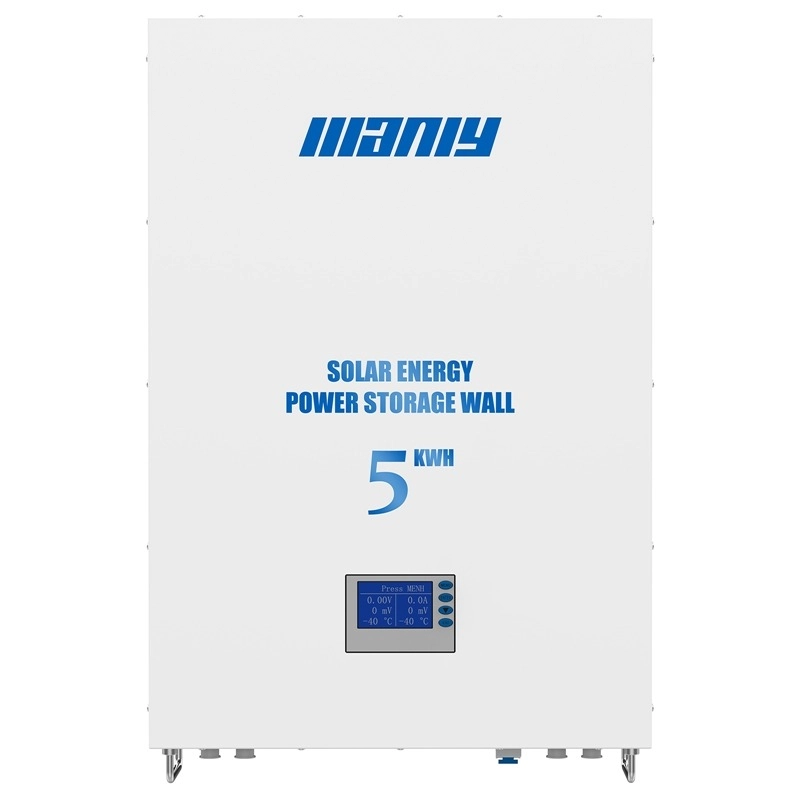
3. 5kWh Lithium Battery for Home Energy Storage
Perfect for residential and industrial energy storage systems, the 5kWh Battery provides stability and efficiency.- Key Features:
- Seamless integration with inverters like Growatt, Goode, Deye, and Luxpower.
- Advanced BMS technology for optimal cell monitoring and balancing.
- Built with LiFePO4 cells for safety and impact resistance.
- Backed by a 10-year warranty and certified by global standards such as UN38.3, IEC62133, and CE.
Global Trust and Certifications
Our commitment to quality and safety is validated through globally recognized certifications, including:- UN38.3 for transport safety.
- IEC62133, UL, and CE for international performance standards.
Customization at Its Best
At MANLY, customization is a cornerstone of our service.- Adjustable voltage and capacity to match specific applications.
- Custom designs and branding to enhance market competitiveness.
Durability and Innovation
MANLY’s lithium battery products are engineered for resilience:- Optimal performance in extreme temperatures (-20°C to 75°C).
- Built-in safety features, such as overcharge and short circuit protection.
- Cutting-edge functionalities like Bluetooth connectivity and battery level displays.
Decade-Long Warranty for Peace of Mind
We stand behind the durability and performance of our products with a comprehensive 10-year warranty. This assurance reflects our confidence in providing long-lasting solutions that businesses can rely on.Why Choose MANLY Battery?
As your battery vendor, MANLY Battery offers:- Trusted expertise with over a decade of industry leadership.
- Proven reliability through globally recognized certifications.
- Custom solutions tailored to your business needs.
- Unmatched production capacity for timely delivery.
- A strong focus on innovation to drive your business forward.

